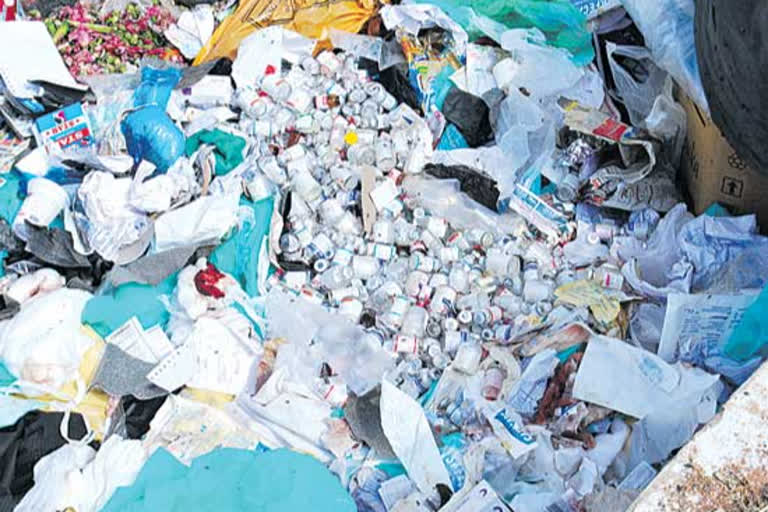Hyderabad (Telangana):With the continuing surge in COVID-19 cases across the country, there is a significant rise in the number of people being admitted to public and private hospitals. Consequently, biomedical waste accumulated across hospitals, testing and diagnostic centres, laboratories and clinics are proving to be a serious public health hazard. Since the pandemic is claiming countless lives, safe disposal of medical waste assumes serious importance.
Dumped healthcare waste exposes healthcare workers, waste handlers and people to toxic effects. Management of used bandages, syringes, surgical cotton and other medical waste is becoming a challenge to hospitals and the government. In the wake of COVID-19, the issue has taken a turn for the worse. Post testing disposed of PPE kits, gloves and masks are getting accumulated everywhere. Hospitals and medical faculties are hardly focused on effective disposal.
According to the Central Pollution Control Board (CPCB), India produced about 616 tons of biomedical waste per day in 2019. Assocham and Velocity surveys revealed that the number would shoot up to 776 tons by 2022. The CPCB estimated that the country is generating 146 tons of medical waste a day only from the testing, treatment and quarantine of COVID-19 treatments. Ignoring this massive pile of hazardous waste would prove dangerous.
The CPCB report said that the waste treatment and disposal facilities were few and far between compared to the amount of generated waste. Recognizing the gravity of the situation, the National Green Tribunal has also directed the authorities to take measures for the proper management of biomedical waste. The Government of India made amendments to the Bio-Medical Waste Management Rules in 2016. They stipulate that biomedical waste must be scientifically disposed of through segregation, collection and treatment in an environmentally sound manner to minimize the impact on health workers and the environment.
